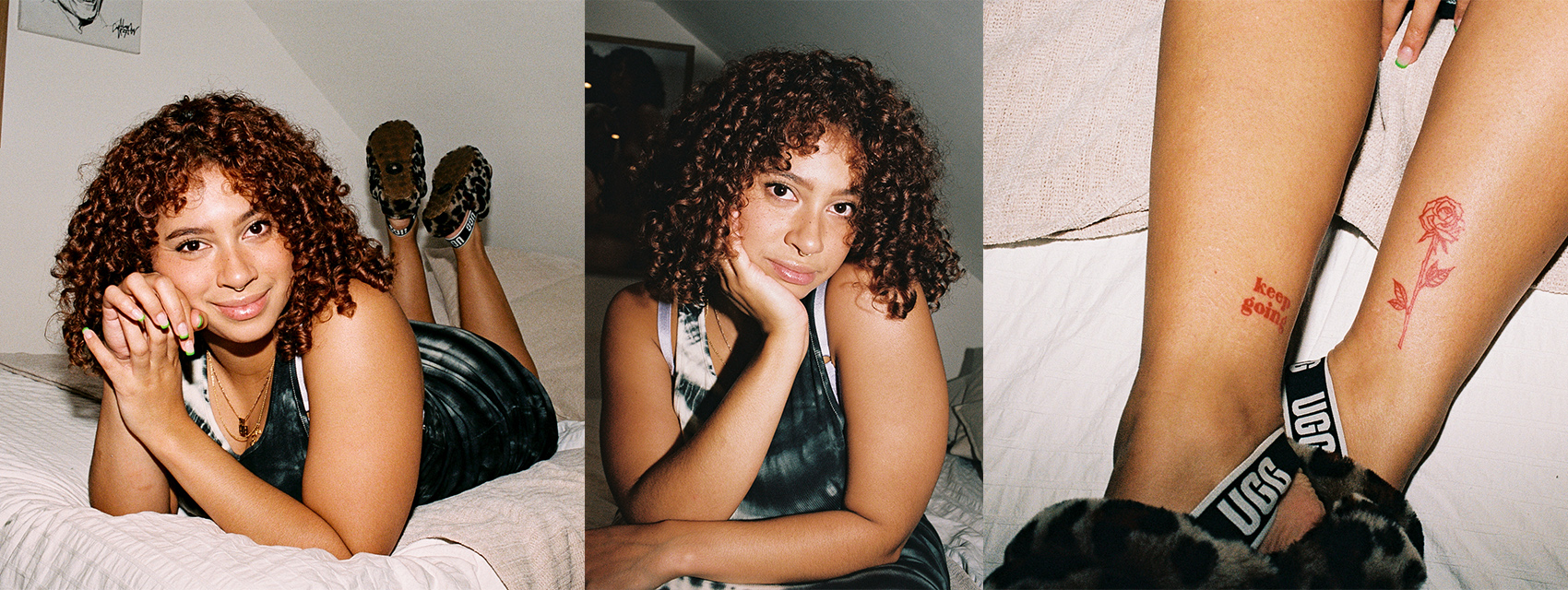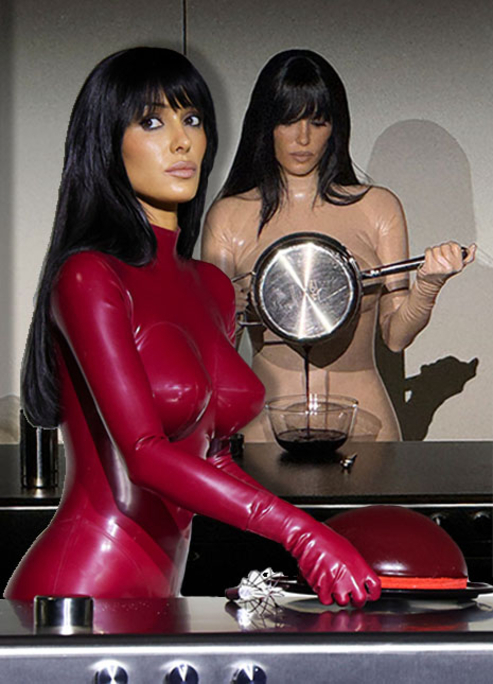We Talk To Photographer & Designer Jasmine Malone
Behind the lens and under the surface with a fantastic creative.
Jasmine Engel-Malone is a photographer and designer based in London, UK. Mainly specializing in shooting analog film, the medium allows her to create raw and often emotional images, all within a relaxed and comfortable setting. To continue our Female Creative series, Fizzy Mag caught up with Jasmine to discuss how she got into photography, her creative process and projects and how young people can be encouraged more into the arts….
What made you want to become a photographer and when did you discover it was something you were good at?
It's always been a thing I have been into since I was young - my dad is a musician and has always been into taking pictures. When I was a kid, I always had disposable cameras and was allowed to play with the equipment he had. With regards to photography, I used to take my camera out on school trips and into the garden and just have full creative freedom. I have always been creative - I wanted to be an illustrator or a painter - but nothing consistently held my interest like photography did which was good for me as I was a really hyperactive child and couldn't sit still. Photography offered me an opportunity to be creative on the move. So when I got to school and was thinking about my GCSEs, I realized, “wow I can actually do this as a career” and have been booked on shoots since I was 16. From there, it was about continuing to learn and develop.
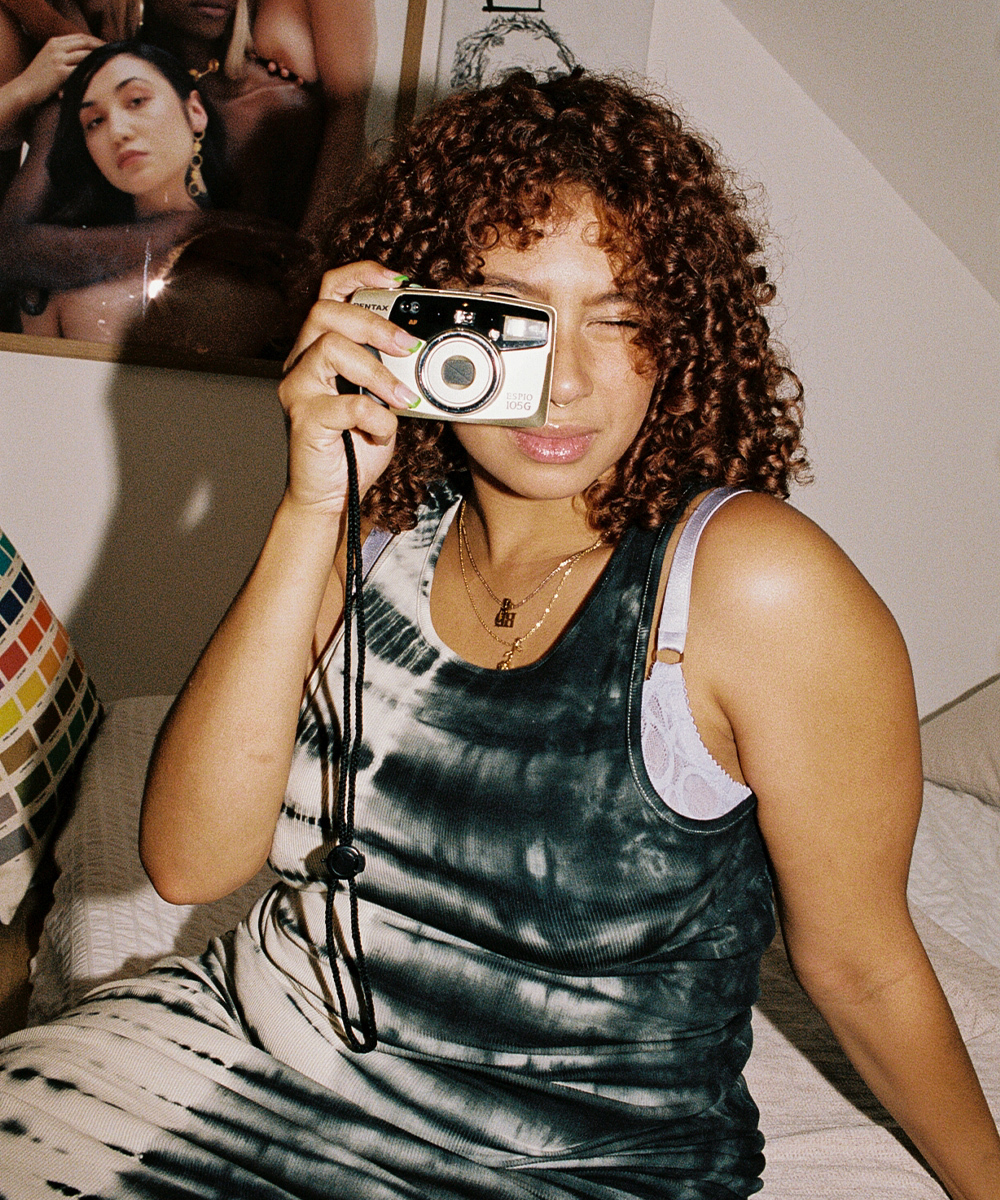
How would you describe the aesthetic of your work for someone who had never seen one of your pieces before?
A lot of my work is soft focus, natural and a word I often use to describe my work is comfortable. I know it's a strange way to describe an image but I think I base my work around my model or subjects feeling comfortable as a lot of the work I do is nude work. I care about making the image feel very natural, not forced and quite seamless. It's only more recently that I have gotten into fashion and studio work which I do enjoy but even with that, I try not to make it too dramatic. I want to take pictures that are exactly how I'm seeing it in real life which I guess is why I choose to shoot analog instead of digital.
“A lot of people saw me as a photographer who spoke a lot about women's rights and the issues that we face within the world”
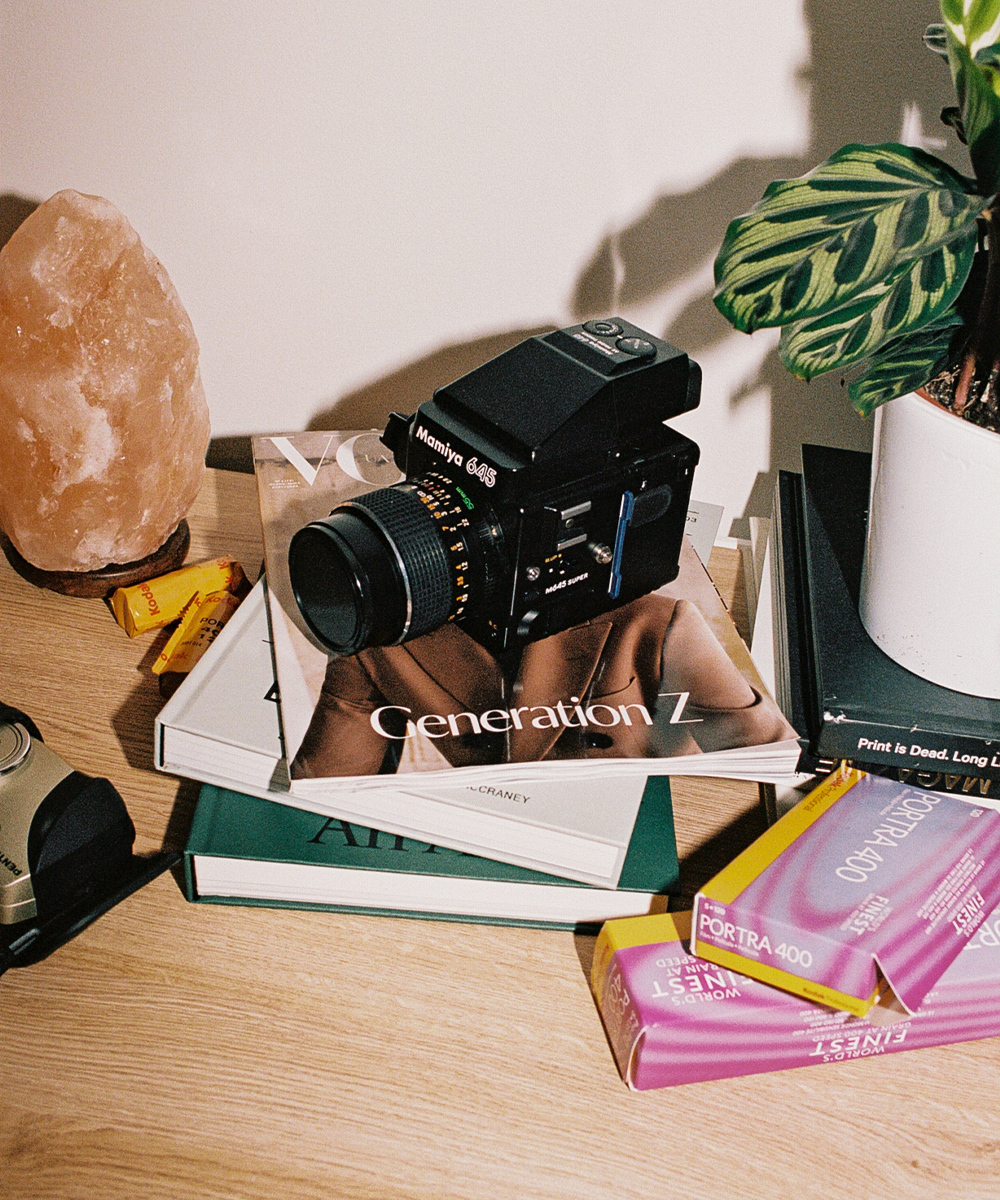
Touching on that, you primarily shoot using analog film - what are your particular reasons behind that and what uniqueness do you think it brings?
Essentially, I started shooting on analog because I learnt to shoot on analog. Because I was such a fidgety child, analog really helped as there is a whole process involved and you have to do all these manual things. I really enjoy the mechanics of it. I also had a darkroom in school so I learned how to process all my own films. I also feel that it looks closer to what I visualize aesthetically, in terms of the uniqueness it brings. It is easier for me to achieve the visuals I want with film in terms of just the colors and the grain. I really admire people that shoot digital because my brain just doesn't understand it but I have been learning on shoots and trying to get test shoots to experiment more with digital. To be honest every creative thinks about their work differently.
What do you feel have been the biggest barriers you’ve had to overcome with regards to your photography?
I spent a lot of years shooting a lot of personal projects, a lot of which involved nudity and I think it put me in a place where I was pigeonholed, which was good in some ways because a lot of people saw me as a photographer who spoke a lot about women's rights and the issues that we face within the world. But then, in terms of commercially, it meant that a lot of people see my work and think “oh she cant shoot this or she can't shoot that”. So that means that over the past two to three years, I've been grinding really hard to shoot more fashion and editorial stuff because I really can shoot that and enjoy it.
Over the past year, covid has made it easier for me to break into more of a commercial space and gave me time to plan things - I had time to sit back and think “who am I trying to work with", “what stylists can I get on board”. Then as soon as studios were back open, I was ready to go with all these shoots. I think it also made me realize how much I really enjoyed beauty photography quite a lot so that got me quite a few links and connections into that space. So there's been some challenges but overall I have found a way through it.
Your 2019 debut project Distance focused on representations of the female body in modern photography, a theme you’ve carried on through most of your work. Do you feel that this is underrepresented in the current scene and how did it feel having your debut show?
The reason the project came about is because I was at university and my dissertation thesis was “what is the definition of the words nudity and nakedness” because if you ask anyone, you might assume they're the same thing. So I was reading loads of studies and loads of papers about what those two words really mean within society. They are completely different words and they don't really mean the same thing, it's mostly just based on how women are viewed within society which causes the definition of those words. Nakedness is deemed to be more intrusive while nudity is the artistic form of a woman however a man sees them. So I wrote my dissertation on this and looked at how the female form has been represented throughout history, how a lot of the standards within society are made up and push people to be hard on themselves to conform to certain stereotypes.
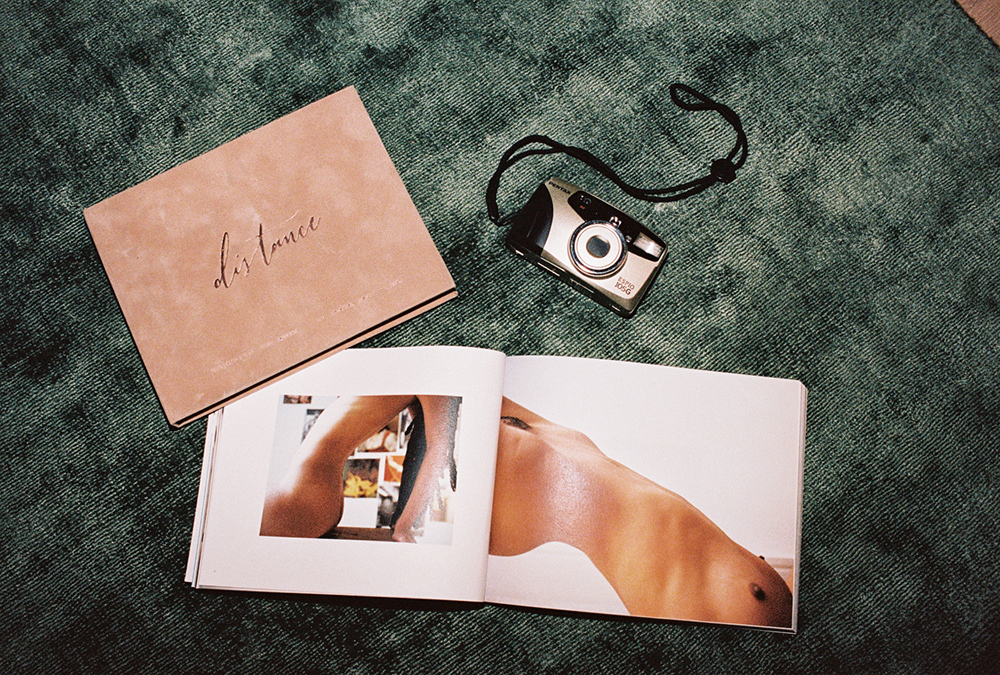
The project and subsequent exhibition came from this and I wanted to work with loads of girls from different backgrounds - some who were my friends and some who I just met on Instagram. Most of them had never modeled nude before and it was nice for them to give me that trust and a lot of the shoots were me asking them what they wanted to shoot and making them feel comfortable. I thought it was quite nice and refreshing as a lot of nude photography is shot by men and it can be quite sexual and I thought that other versions of these images should exist. I read a really powerful quote in my studies that said: “more women need to create the art that they want to be represented by”. The major achievement for me was when the models I shot came to the exhibition and saw these massive A1 prints of themselves and were really proud of themselves.
“I wanted to shoot pictures the way I would want someone to take pictures of me”.
During the lockdown over the past two years, did you find that it impacted your creativity and if so/not, why?
As a photographer who likes to shoot people at home, it meant I could not do that which was really difficult. I had also started working on my next project which was to take the same train of thought from the Distance project and really apply it to how women of color are specifically affected by this because that experience is completely different to women overall and I also thought about how I could make it more specific to myself. So I started shooting my Angels project and shooting women of color nude but as angels because renaissance art and old religious art don't really depict people of color.
With the lockdown, I wasn't able to finish it but it also allowed me time to sit down and think about how I am going to approach it as it's a sensitive conversation. It also gave me time to also talk to other women to see how they felt about it, if they felt it was relevant and if they wanted to be involved and the feedback was really positive. So now I can move forward with it knowing that I'm doing something that's necessary and will have a positive impact.
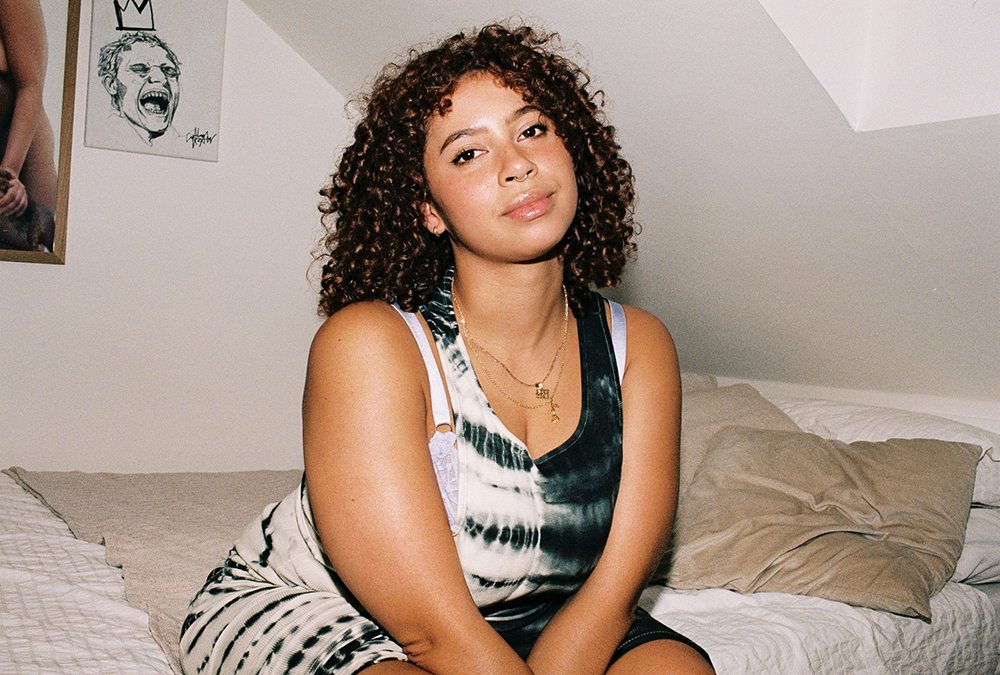
As an artist in your current situation, do you feel that you need to go out there and push your work or are you now at the point where people are recognizing your work regardless?
Honestly, I feel like I'm so on the line. In some aspects, I feel recognized as companies will be getting in contact and wanting to work and I think that it's finally happening. But there will be other weeks when it can be quiet. I think I've learned that you have to keep your foot on the gas with regards to freelancing and am currently building back up that momentum. Sometimes I'm having to reach for stuff and other times, it does come to me. I also think that with things getting back to normal, I have the space to do some of my bigger editorial projects and hopefully that will make things happen.
What current creatives do you see around and who do you get inspiration from?
One person, who I am lucky to work with and is one of my best friends is Vicky Grout. I'm able to watch her work and her process and me and her shoot very different things. But I think she's an incredible photographer and I am inspired by her and her work ethic. Then there's my friend Faith Aylward who I shoot with a lot and she is a crazy force of what she can do. She makes me question the way I work and makes me not afraid to try different approaches to my work. Honestly, I feel so blessed as so many of my friends are creative and I think it’s nice to surround yourself with people that don't necessarily do the same thing as you but you can learn from and take things into your own work.
“I don't think that anyone can not have an outlet of some sorts and I think creative outlets should be encouraged and facilitated”.
What more do you think can be done to help get more young people in the creative fields?
I would have been nice to know from a younger age that a creative career is a viable option. I think a lot of pressure is put on children to think about their futures and just get grades. I think for those of us who are more creative rather than academic, it would be nice for that to be encouraged. It can cause stress and anxiety from such a young age about things that may or may not even really matter so much in the future. Realistically you can do both - you can be encouraged in school with regards to academics, and still be encouraged to be creative.
Due to the way our system is and taking funding away from children being able to express themselves, it causes nothing but harm and means children have no outlet. For me being a kid that was so overactive, chatty, always getting in trouble, running around and couldn't sit still - for someone to put a mechanical thing in my hand so I could sit quietly and busy myself instead of getting into trouble was a really good thing for me.
What are your hopes for the future with regards to your role and what you hope to achieve by the end of the year?
For the future, I really hope I can shoot full-time freelance and I just want to make stuff and be a part of it. I enjoy being in the environment of creating imagery for people to enjoy. I want to shoot more and enjoy it. The last two years have been tough on my mental health and it made me realize that I just want to be happy to some degree. In terms of the end of the year, I have got a project coming out with Faith Aylward, who I shoot with a lot, in collaboration with another magazine and when that drops, I think it’s going to be a major achievement for me [edit - the project dropped in Nov 2021 and can be found here].
Follow Jasmine’s journey via her social media and take a look at her online store.
Photography: @vickygrout



